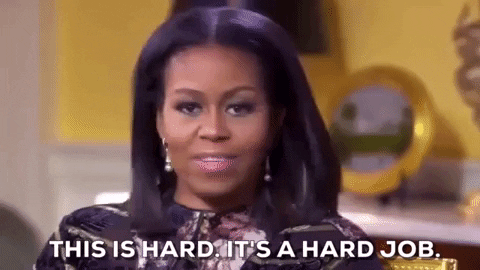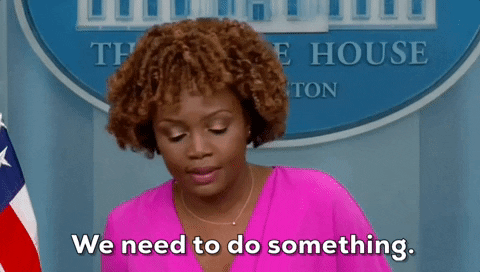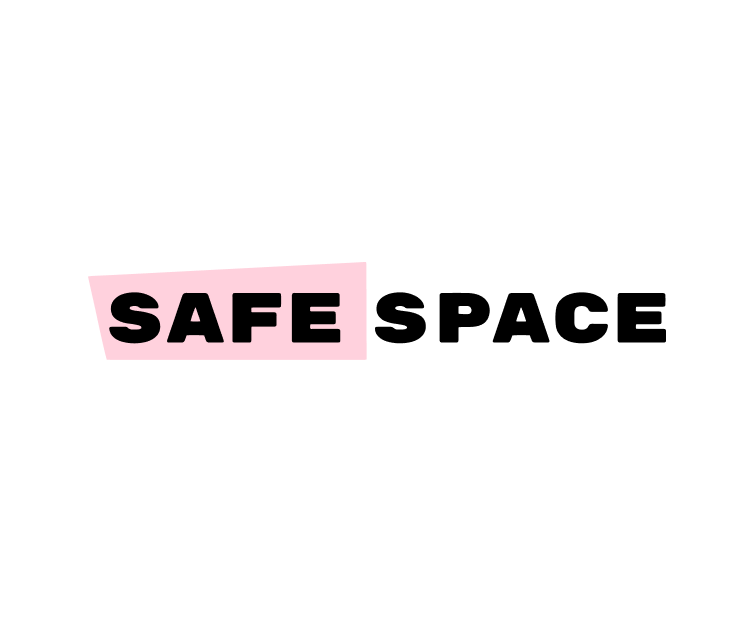
Talking about unfair treatment may be the hardest conversation to have in the workplace.
Why?
Well, there are a few things at play!
Employees are navigating the following:
- Fear of retaliation
- Lack of confidence in the reporting process
- Lack of anonymity
- Uncertainty about what happens next
- Professional consequences
- Unconscious bias
That’s a lot of complicated things to navigate, especially in this current economic market where there is a heightened fear of losing a job.
Enter managers.
Many managers are either the cause of the unfair treatment (cough sh*tty ones cough) OR don’t know how to have this conversation. We aren’t fully training our managers to handle all the various convos, especially this one!
The final thing that makes conversations about unfair treatment tough in the workplace: society.
Our society has deeply ingrained systemic racism.
And systemic racism can make conversation about unfair treatment difficult because:
- Systemic racism creates a power imbalance where marginalized groups have less influence and therefore are less likely to speak out.
- Systemic racism creates a lack of trust because marginalized employees may have experienced repeated instances of discrimination or seen a lack of accountability for that unfair treatment.
- Systemic racism normalizes unfair treatment by creating workplace cultures with deeply ingrained biases and discriminatory practices.
- Systemic racism creates a lack of awareness where some employees will never experience discrimination and have limited knowledge about the challenges faced by others.
- Systemic racism takes an emotional toll and employees may have a hard time speaking up about their experience.
Taking all those factors into consideration, it’s no surprise that employees may brush things off and move on with their day rather than strike up a convo about unfair treatment.
But there are things HR can do to ensure that conversations about unfair treatment aren’t so difficult because left unaddressed unfair treatment is toxic to any organization.
What is unfair treatment?

I will never forget the first microaggression I experienced.
I had just spent the day on stage facilitating a company retreat. I was flying high and so pleased with how the day went. I was celebrating with a few teammates when a coworker approached me and started chatting about what a great job she thought I was doing on a project I had nothing to do with. At first I was confused then it finally dawned on me that she had mistaken me for another woman at work.
The one thing the woman she mistook me for and I have in common? Olive skin.
I felt so insignificant at that moment. Why was I not worthy enough for her to know who I am? Then the anger settled in. I had just spent the day on stage facilitating in front of the company! WTF. I was livid.
JOIN 130K+ HR LEADERS
Get insights, learnings, and advice on how to build companies and cultures that people actually love.
No spam. Unsubscribe any time.
I later learned she had done the exact same thing to two Black women and had also shouted at another two women from other underrepresented groups.
As sad as it is to say this, I do not think my experience is all that unique.
Not a fun fact: 61% of Americans have said they have experienced or witnessed workplace discrimination.
So yeah, unfair treatment at work is pretty common for underrepresented groups.
What is unfair treatment?
Being treated unfairly at work can refer to experiences or situations that are:
- Discriminatory (like the microaggression I had experienced!)
- Unjust
- Inequitable
And can manifest in a few ways in the workplace, such as:
- Unequal pay
- Limited opportunities for growth and development
- Bias performance evaluations
- Harassment or discrimination based on protected characteristics
- Exclusion from decision making processes
FYI: when employees feel they are being treated unfairly and lack an outlet to report their experience or resolve what happened there are greater consequences.
Being treated unfairly at work impacts:
- Engagement
- Wellbeing
- Satisfaction
- Career progression
- Retention
- Culture
HR teams are usually caught in the middle trying to balance building an equitable internal culture despite inequitable external factors.
What can HR do?

HR can be committed to building an equitable workplace but if employees are afraid to have convos about unfair treatment… is it really an equitable workplace?
Nope!
Here are 2 things HR can do to set employees and managers up for success when it comes to discussing unfair treatment in the workplace.
- Training. This probably doesn’t come as a shock to you that I’m suggesting training! But I think we need more training around DEI in the workplace.
To note: It has been shown that DEI training does very little to affect change within a workplace.
So why am I suggesting it?
Because training can be impactful if deployed correctly. Training can create awareness of different experiences and help build empathy for others. It can also give employees a shared vocabulary around experiences and the ability to better communicate about unfair treatment.
But training shouldn’t be viewed as a one and done thing. There has to be follow up and a factor of accountability to the training. Not to mention a broader strategy!
Example: A training on microaggressions should feature a section holding employees accountable for their behavior and lay out what HR will do if an employee is a frequent offender.
Cough fire them cough.
BTW: DEI training is a waste if an organization doesn’t care and just views the training as a check box on the quest to appear inclusive.
Real talk: Let’s call a spade a spade. If your organization doesn’t care about inclusion you shouldn’t force a training because it truly won’t affect change and could do more harm than good. Employees will see right through this!
- Consider a manager specific training. Honestly, managers need training on everything.
Every manager needs to know how to respond when an employee feels something is unfair.
The nonviolent communication framework is a great place to start to give your managers a template on how to have conversations based in empathy.
Managers may be afraid of conversations about unfair treatment but giving them a framework to better have the convo will help.
To note: unfair treatment is born from inequitable decision making processes.Train your managers on understanding the power of their decision making for processes like hiring and promotions. Helping them understand how decisions can be inequitable can help avoid unfair treatment all together. Idealistic thinking, I know.
One final thing: Ideally, we want employees to feel safe to have convos with their managers about unfair treatment but if that isn’t the case, having an option for employees to report anonymously to HR may be your best option.
There are a lot of tools out there that help facilitate anonymous reporting.
As HR you must have a documented process for how you handle these reports. Do not create a way to report anonymously and then do nothing about the reports!
A bold take: don’t be afraid to fire employees who are consistently treating employees unfairly and creating unsafe environments.
Wrapping it up:

Conversations about unfair treatment in the workplace are incredibly complicated due to the factors at play.
But we shouldn’t avoid those conversations because we can learn and grow from them.
HR teams can help employees and managers have these conversations in a productive manner by creating awareness and empathy, building a shared vocabulary, and eliminating the fear of retaliation.
Do not be the HR team that punishes the person for speaking out. Last note: HR can’t stop everything from happening but having processes in place that aim to reduce the bias can be helpful.


